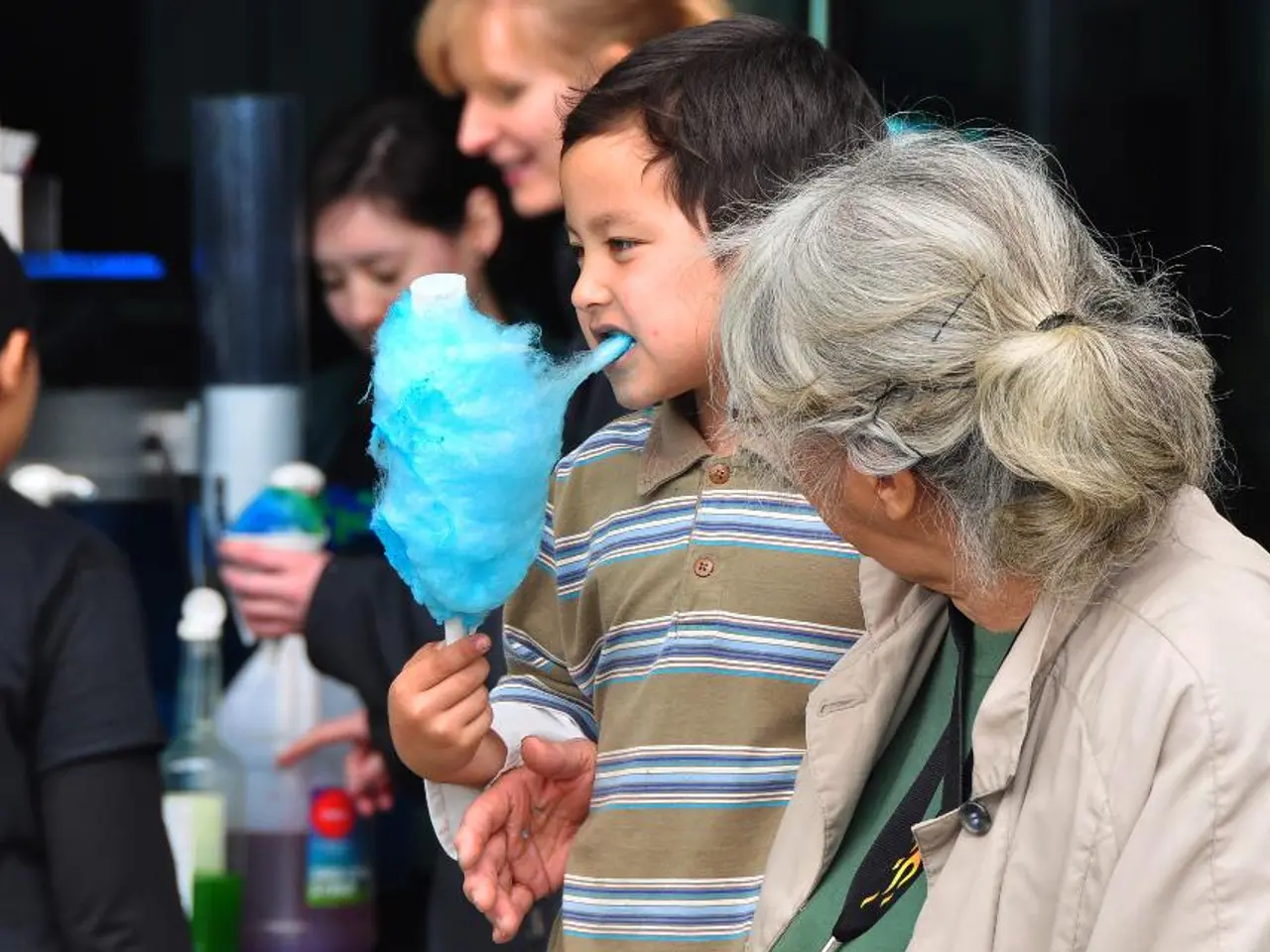Connection Between Children's Mental Health Problems and Consumption of Energy Drinks
In recent times, there has been growing concern over the impact of energy drinks on children's mental health. A host of factors, primarily the high levels of caffeine and other stimulants these beverages contain, have raised red flags among health authorities and experts.
One of the most significant issues is the disruption of sleep patterns in children. The caffeine present in energy drinks can lead to insomnia or poor-quality sleep, adversely affecting mood, behaviour, cognitive functioning, and learning retention.
Another concern is the increased risk of anxiety and nervousness. Excessive caffeine intake can cause feelings of anxiety, nervousness, and jitteriness in children, impacting their mental well-being and concentration.
Furthermore, several studies have suggested a potential link between energy drink consumption and the development of serious mental health issues in children, such as anxiety, depression, and stress. These issues are thought to stem largely from sleep disruption caused by stimulants in these drinks.
The potential for dependency and withdrawal is another worrying factor. Regular caffeine consumption can lead to dependence, with withdrawal symptoms potentially affecting children's mood and behaviour when intake stops.
Cognitive impacts are also a concern. Although taurine in energy drinks may balance caffeine's stimulating effects, high doses may lead to fatigue and anxiety, and affect brain function through mechanisms involving calcium regulation, possibly impairing cognitive performance and memory.
Other physiological risks affecting mental health include elevated heart rate and blood pressure from high caffeine intake, which can contribute to medical emergencies, including acute mania and even stroke, which may also influence mental health status.
Given these risks, health authorities and experts strongly caution against children's consumption of energy drinks. They encourage alternatives such as water, milk, or natural fruit juices to support better mental and physical health.
Educators and healthcare professionals also play a role in educating children about the potential dangers of energy drinks. Educating children about the potential negative effects of excessive caffeine consumption on their mental and physical health is crucial.
Stricter regulations regarding the marketing and sale of energy drinks to minors can help protect children from potential harm. The industry's responsibility includes taking steps to ensure clearer labeling and warnings about the potential risks associated with their products.
While energy drinks may seem appealing to children and adolescents, the potential risks to their mental health cannot be ignored. Encouraging the consumption of water, milk, and natural fruit juices can help reduce the reliance on energy drinks among children.
- The disruption of sleep patterns in children by energy drinks can adversely affect their cognitive functioning, mood, behavior, and learning retention, which are critical for overall mental health.
- Excessive caffeine intake from energy drinks can cause feelings of anxiety, nervousness, and jitteriness, potentially leading to the development of serious mental health issues such as anxiety, depression, and stress.
- The potential for dependency and withdrawal from regular caffeine consumption can affect children's mood and behavior when intake stops, which could have a negative impact on their mental health.
- Educating children about the potential negative effects of excessive caffeine consumption on their mental and physical health, as well as stricter regulations on the marketing and sale of energy drinks to minors, can help safeguard children's mental and physical well-being.




